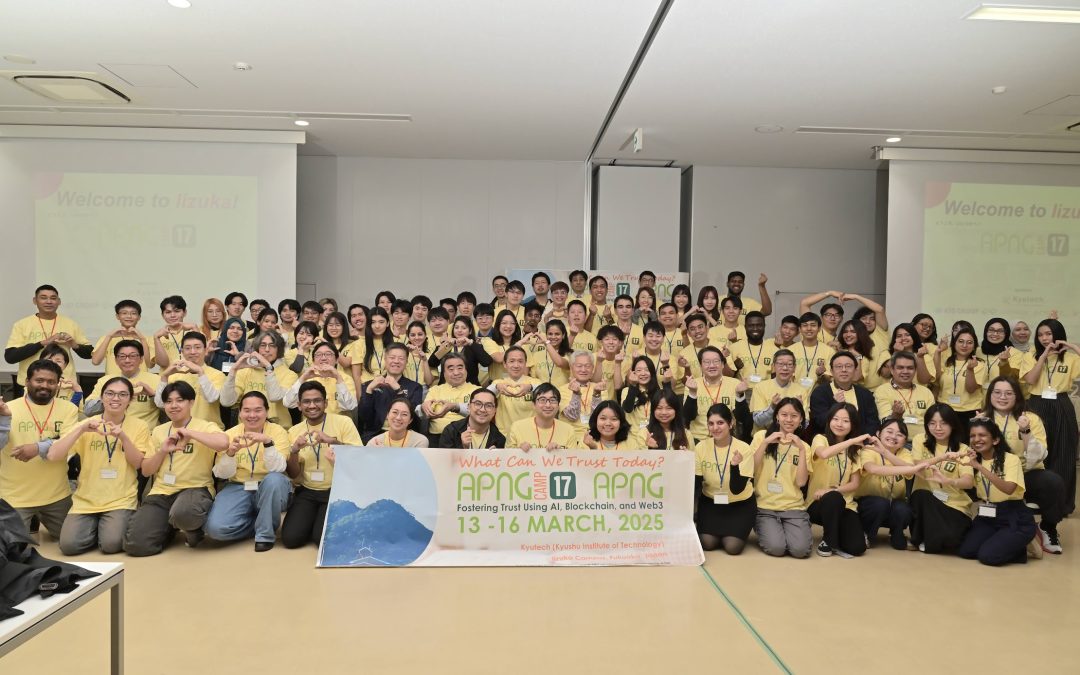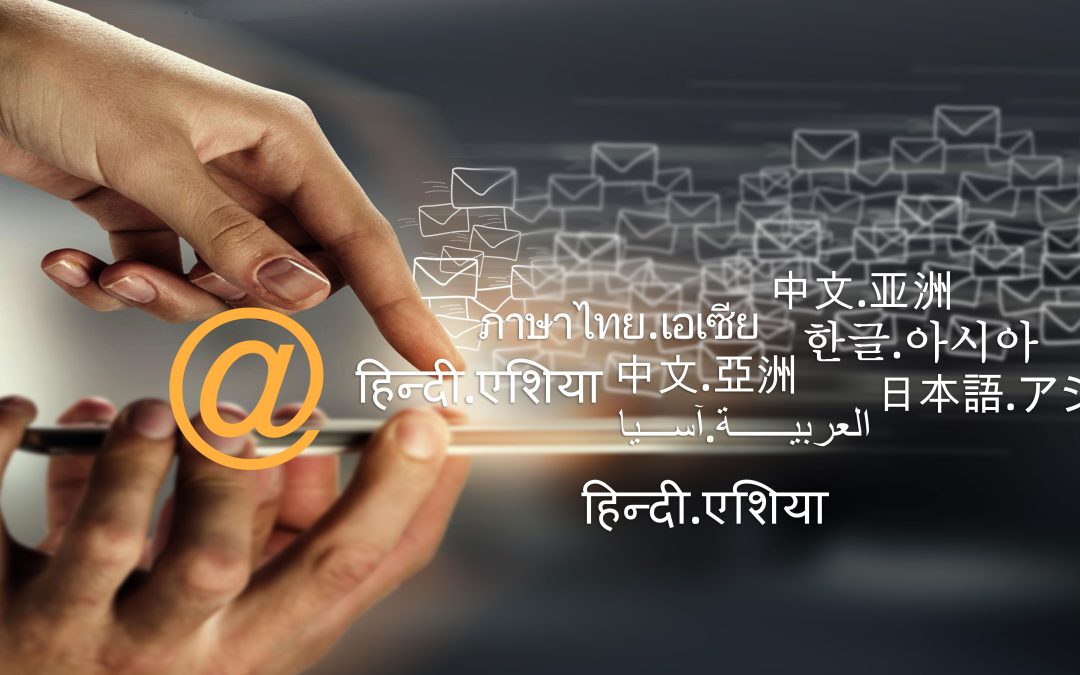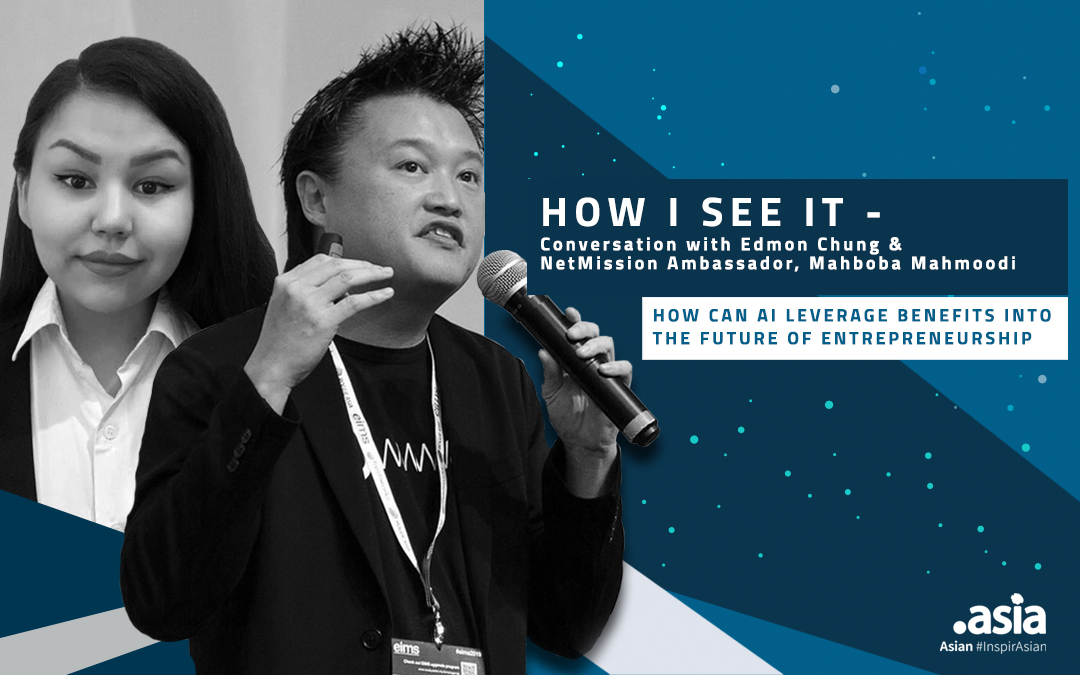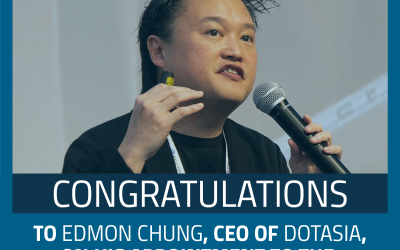Machine learning and AI technologies are advancing at a rapid pace, especially when it comes to e-commerce, mobile economy, and human-computer interactions with the real world. According to “Global Data” the Asia-Pacific (APAC) region is expected to emerge as the global leader in artificial intelligence (AI) growth, due in large part to widespread government support and new policies.
In this episode, Edmon Chung, the CEO of DotAsia Organisation, and Mahboba Mahmoodi, NetMission ambassador – A Computer Science student from Afghanistan and passionate about emerging technologies – discusses IT technologies and their impact on reshaping today’s industrial and business market.
“You can get AI and robotics to work intelligently and meticulously through things, but the initiative, creativity, and innovation of human beings would be increasingly important.“

Mahboba:
How would new technologies change the future of organizational priorities and their strategic goals?

Edmon:
The emerging technologies that people call the ABCD of technology (AI, Blockchain, Cloud, and Data) are very exciting with their advancement since it creates enormous opportunities for entrepreneurs and startups to shift and develop a variety of technologies out of it. One of my biggest concerns though is any hasty development and jumping to the conclusions based on technological assumptions. Being quick doesn’t mean it’s better. Although AI tries to predict consumer or human behavior, if data inputs are biased then it could not only produce flawed predictions, it could produce a feedback loop inadvertently and harmfully shaping human behavior. AI is the kind of technology where considerations of ethics and assurance of good data used for training machines is crucial. We should think through its impact and ethical implications, like privacy, minority rights, mitigations against bias before jumping into reliance on algorithms.

Mahboba:
As for machine learning, we need data to predict future trends and business needs. Do you think we have enough and right data available to achieve and formulate a data strategy and model?

Edmon:
Big data is quite problematic when it comes to ethical data collection that respects consent and stated purposes. What especially worries me is when faced with the lack of data people hurry to come up with synthetic data (which is not necessarily a bad thing, but whether such synthetic data may amplify data bias must be taken into consideration, and mechanisms to identify and mitigate against such AI bias be put in place). In the rush of creating usable AI, people tend to jump to certain conclusions. In the past, people believed that if certain tasks were done or selected by a machine then it’s “unbiased” but the truth is that it’s not that blunt, recruitment AI is a good example of how prior human bias could be perpetuated by an algorithm learning from such data. The right data is very difficult to come by, and it is important to remember that AI provides quick diagnosis and is not going to contemplate on justice, that continues to require human intervention. If it involves a person’s life, more consideration must be needed, but if it’s just to give you ideas on what bag you should buy, the rigor of scrutiny against such AI can perhaps be more lax.

Mahboba:
What can be the business consequences if the AI model fails the company’s expectations?

Edmon:
Based on the AI technology we have today, “People” are still an important aspect of businesses, especially for entrepreneurship and small startups. Businesses should not completely depend on how these machines are put together and must pay attention to the data used for teaching these machines. Businesses should not depend on it completely. For example, if a small company depends 100% on AI for the hiring process, I feel that a startup or SME would be foregoing the one most important and valuable part of their business, which is the people and the team you assemble.
A hybrid approach can potentially be useful. Besides using AI to sort resumes to save time reading them all, you can also have the AI provide borderline cases for human consideration rather than a binary cutoff of shortlisted candidates. A broader aspect and imperative for the entrepreneur and management is to always know what the algorithm is trying to do, even if you are not technical. Never treat AI as a black box, especially when making important decisions based on AI.

Mahboba:
What will be an ideal job for future work?

Edmon:
Although it is difficult to predict the future, more “lasting” jobs in the future would be those that require initiatives from human beings. You can get AI and robotics to work intelligently and meticulously through things, but the initiative, creativity, and innovation of human beings would be increasingly important.
Human agency is more valuable than the mechanical processing of certain things. It is said that doctors might be replaced by robots soon. It will be interesting to see robots replacing jobs, however, I believe rather than thinking of robots replacing doctors, we should think of how we utilize AI as the assistants of doctors. These tools will continue to support human decisions, this is the way I see it. So doctors using AI should also have some knowledge of the AI they use. It’s not that I trust every single human doctor more than AI, but when I go to a doctor, the element of responsibility needs to be present. Subject matter knowledge is still important, it is not memorizing but understanding and relating with another human being, the patient in this case, to make joint decisions that will be valuable. I think one of the skills that would be increasingly important is understanding the algorithm and how the code works. Future professionals would work with algorithms and AI that assist them.

Mahboba:
How do the private and public sector provide fair treatment toward human and non-human workers in employment?

Edmon:
I think we are still a long way off from thinking about an autonomous AI “worker” for which we need to consider its “rights”. That assumes AI and robotics could and would emerge with consciousness that could be oppressed by humans. Viewing it in a more realistic way, some jobs may get replaced by robots and intelligent machines. I think it is “unfair” to stop certain technologies from moving ahead because of a job replacement, but it is equally unfair not to develop policies that would address such social issues as they emerge.
There are two distinct type of considerations: Firstly, if a job is being replaced by a machine which potentially creates injustice, for example, replacing a judge, then we must consider if it is fair for the suspect to be subject to such determination, what appeals mechanisms there should be, and consider why the judge should not be assisted by the AI rather than replaced; Secondly, if someone is replaced and it does produce better outcomes, which does not lead to injustice. Governments and societies must consider how best to develop alternative meaningful opportunities for those who are replaced.
Every time when a job is replaced, it is supposed to result in more time efficiency and less resource consumption to accomplish certain jobs. Therefore, companies and governments have to think about how such cost savings can be reinvested into employing people and increasing value as well. Profit motives unchecked produces systemic economic injustice that exploits people with an assumption of a materialistic and utilitarian universal worldview. I think the more technology we have, the more we should revisit this issue. Although the last iteration, which drove massive exploitation of cheap labour and then Marxism in its wake proved disastrous, hopefully, our collective learning in rectifying that subsequently over the long and continuous fight for human and worker rights and welfare is not forgotten, so that in this new iteration of technological breakthrough and industrial paradigm shift, human beings can fare better.
This.Is.Asia Newsletter Issues
This.is.Asia December 2021 Issue
This.is.Asia October 2021 Issue
This.is.Asia October 2021 Issue
This.is.Asia August 2021 Issue
This.is.Asia August 2021 Issue
This.is.Asia June 2021 Issue
This.is.Asia April 2021 Issue
This.is.Asia February 2021 Issue

17th Asia Pacific Next Generation (APNG) Camp
The 17th APNG Camp successfully provided a collaborative space for young Internet leaders to explore critical topics related to trust in the digital age.

Beyond ASCII: The Vital Role of Email Address Internationalization in a Connected World
As the world becomes more connected, the need to use domain names and email addresses in local languages and scripts also continues to rise. EAI adoption has been growing in recent years, according to a Universal Acceptance Steering Group (UASG) report, as of May 2021, around 9.6% of email domains now support Email Address Internationalization (EAI), marking a noteworthy improvement from previous years. This progress indicates that EAI support is becoming more prevalent, ultimately making it simpler for individuals across the globe to utilize email addresses in their preferred languages and scripts
Continued Commitment to the Vision and Mission of DotAsia
An Open Letter and Call for Support Dear DotAsia Board and the Asia Pacific Internet Community, Thank you for the invitation for me to submit to you my ongoing commitment and vision for DotAsia to be a contributor to the regional and global Internet community as the...

AAPI Heritage Month: Interview with Tommy Ho
Asian American heritage is about inclusion. It’s a description that cuts a wide cloth across a vast array of cultures and peoples, and it’s important to celebrate the similarities and differences. I see that diversity represented within GoDaddy’s Employee Resource Group (ERG), and GoDaddy Asians are growing. Especially during these unpredictable times, our sense of belonging that we feel through our groups help to boost mental and physical health.





